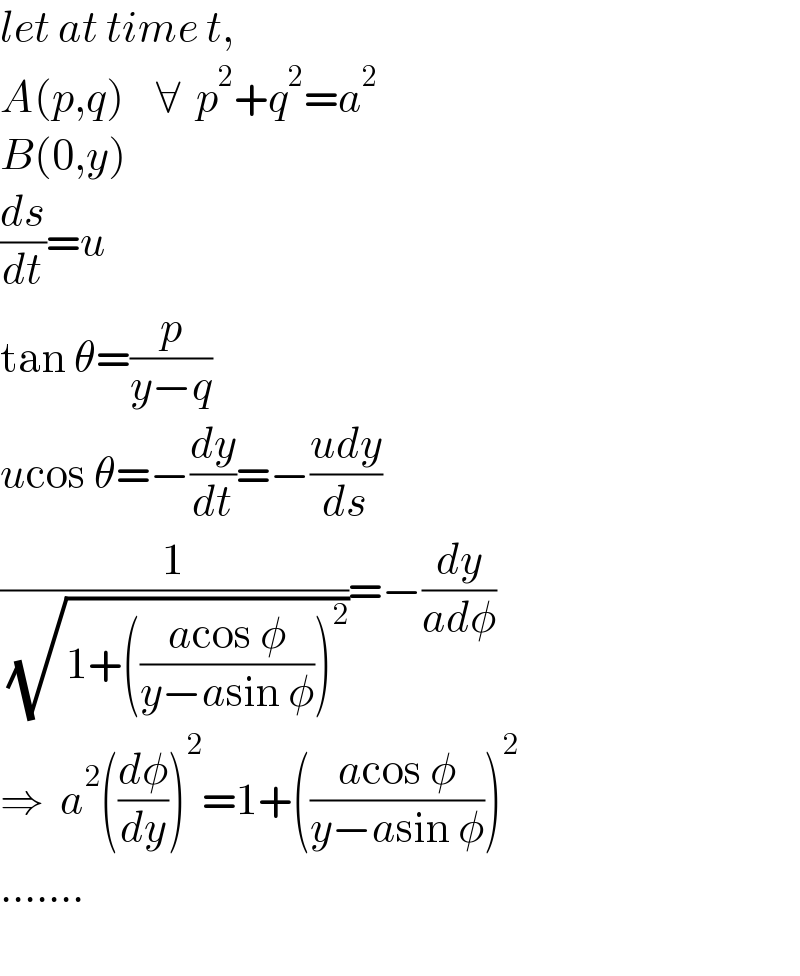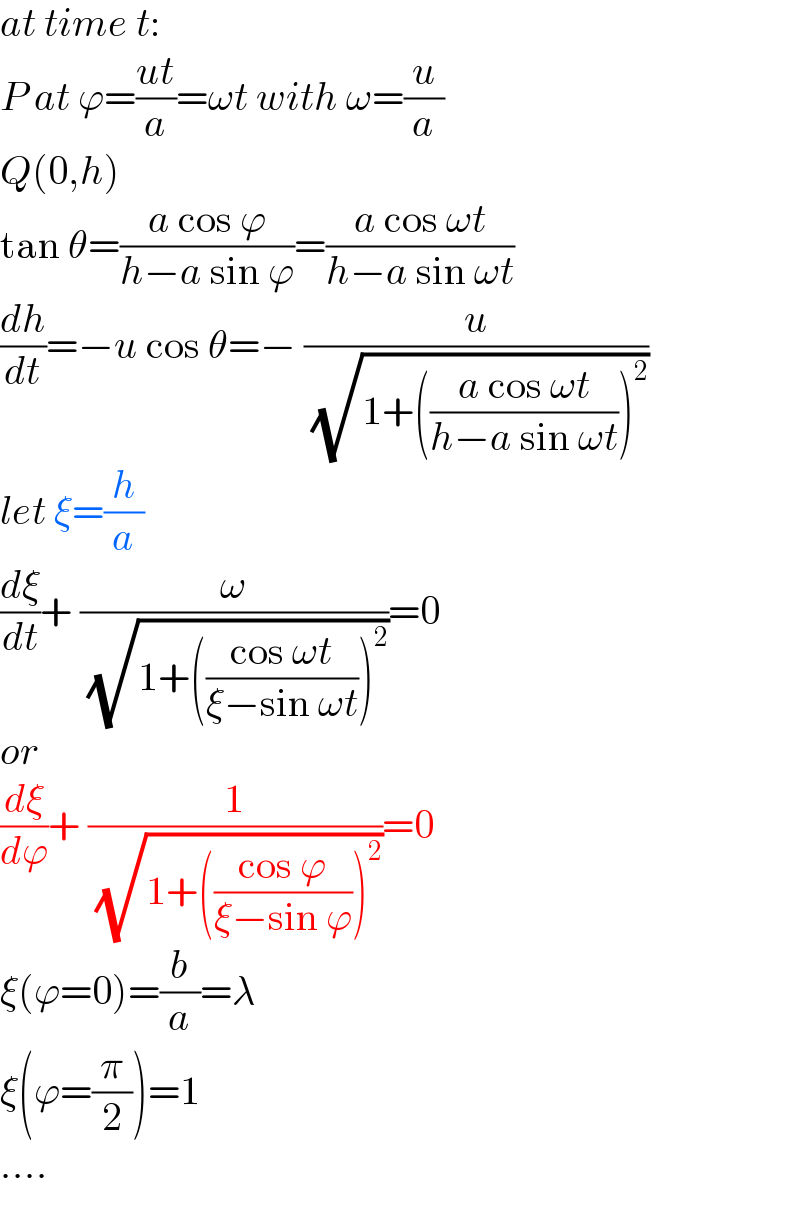
Question and Answers Forum
Question Number 170005 by ajfour last updated on 13/May/22

Commented by ajfour last updated on 14/May/22

Commented by mr W last updated on 14/May/22

Commented by ajfour last updated on 14/May/22

Answered by ajfour last updated on 14/May/22

Answered by mr W last updated on 14/May/22

Commented by mr W last updated on 14/May/22

Commented by ajfour last updated on 14/May/22

Commented by mr W last updated on 14/May/22

